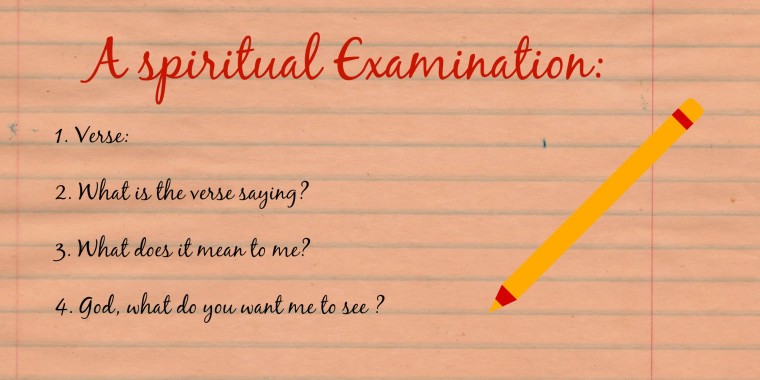
It’s not what you expect, it’s what you inspect.
For three years the school district where I taught had a superintendent that was a veteran of the Vietnam War. He had been an officer in the war and rarely talked about his war-time experiences. But the war shaped him. When I looked closely I could see the war’s influence on him, and in some ways, in how he administered.
He had a saying that he lived to a fault, “It’s not what you expect, it’s what you inspect,” which he attributed to Colin Powell. He inspected our work weekly. He required the teachers to test their students frequently with language arts examinations. We printed out graphs and percentages. Classroom results were shared with other teachers, across grade levels, school-wide, and individually. Student performance was the hill to die on.
Our superintendent meant well–nobody coasted–but the teaching staff’s morale tanked. We didn’t particularly like being observed under the microscope and being pitted against one another. Now, almost two decades later, I can see what he was doing with more charity. He was just trying to bring us up to speed to meet the ‘No Child Left Behind’ federal mandate.
Expecting high performance levels is not enough when best practices are not in place. Instituting best practices is the first step to getting where we need to go. For instance, let’s say, physical fitness. Best practices say it takes eating healthy foods, exercise, hydration, good rest, and eliminating what’s harmful to health. No short-cuts to getting there.
The same could be said for the way we live our spiritual life. It’s not what we expect, it’s what we inspect. Not only to do we need to be faithful in our bible reading, study, prayer and meditating, we need to look closely at our spiritual walk. Spiritual self-examination is a spiritual discipline that takes a measure of purposed intention.
The examined life is a productive life.
This same superintendent had been a teacher in the district for many years. I knew him as a teacher before he moved into vice principal and then superintendent-principal positions. I saw he was a man of letters, of learning, and he was well-read. His mind was always working toward the bigger goals.
I had many opportunities to talk one-on-one with him since I was the reading specialist and reported to him. On numerous occasions he said to me that he could tell which of the teachers self-evaluated. He could tell that I self-evaluated and that it made me a better teacher.
What he really was saying is this: self-evaluating means that a teacher sees their strengths and their weaker areas. The best teachers work to bolster both weak and strong areas in their pedagogical practices (the method and practice of teaching).
Good teachers are always working to better their skills and improve in their abilities. They don’t rest on their laurels nor do they think they’ve learned all they need to know to do the job well. This is an attitude issue.
Similarly, the spiritual life is an examined life. As believers in Christ, there is always more to know and do in becoming the person Christ wants us to be. We examine our days and years, actions and thoughts, our growth and our limitations to see where we’ve been and to see where we need to go. We never stop learning, hence, we continue reaching forward.
Spiritually speaking, it helps to examine our walk.
We can look back and see where we lost our way for a while or where we took time to recover from an emotional wound. We were learning throughout it. Conversely, we can also see where spiritual growth was quick and where it took meaningful leaps into living on a higher plain.
The higher we go, the more radical the journey and the stronger we become. We follow where God leads us. Eventually our spiritual life takes us to where the God-actualized liberal grace of God flows unhindered in and through us.
The songwriter expressed it this way.
I’m pressing on the upward way; New heights I’m gaining ev’ry day; Still praying as I’m onward bound, ‘Lord, plant my feet on higher ground. Lord, lift me up, and let me stand. By faith, on heaven’s tableland; A higher plane than I have found, Lord, plant my feet on higher ground.’
I owe this next section to something I discovered in my reading several years ago. I had read of the examen, a part of Ignatian Spiritual Exercises (1522-1524), and wanted to know what it was. In my search I found out that it is a way of viewing (examining) the day’s events with a spiritual eye. The practice is useful in its simplicity.
Examine your day at the end of it.
Before you say, “This is not for me. It sounds too hard and takes too much effort,” look at what it is. Look at what you have to gain from the experience of self-examining your spiritual walk and how God influences it.
It starts with inviting God to guide your understanding. Then, you ask pertinent questions that pertain to your spirituality and God’s part in it. You begin to note patterns of weakness and strength in your spiritual life. There are no set questions to ask, just an awareness of how closely you walked with God and the Spirit’s guidance through it.
As you look back on your day, you note . . .
- Where you were strong.
- Where you were weak.
- Where you asked God to help you.
- Where you acted independent of God.
- Where God spoke to you.
- Where you pressed on without consulting God.
- Where you saw God (in people, beauty, circumstances etc..)
- What your take-away is, what you learned/observed today.
- Then you confess and repent of any sin and wrong-doing.
- Then you thank and praise God for who He is, where He helped, and for what He is doing.
Look for God, and you will see Him.
I incorporate this practice for it informs and brings clarity, peace, and comfort. It also provides space for the Spirit to speak life to my soul. At times, I incorporate Scripture reading while participating in the examen.
God is constantly growing us. He gives so much beauty in the simple things such as a smile or pat on the arm. He uses us to impart beauty in other people’s lives in ways we may not even realize. Even when we’re depressed or overwhelmed, God still helps Himself to our lives and uses us to bless others. This is a great gift to us.
One last suggestion. Should you choose to implement the self-examine, you might want to record your thoughts or make notations and observations in a journal. Then you can look back a few months from now and see how God is using this method to change you and shape your spiritual journey.
Let go, and let God.
For further reading on this subject, read A Spiritual Selfie.

